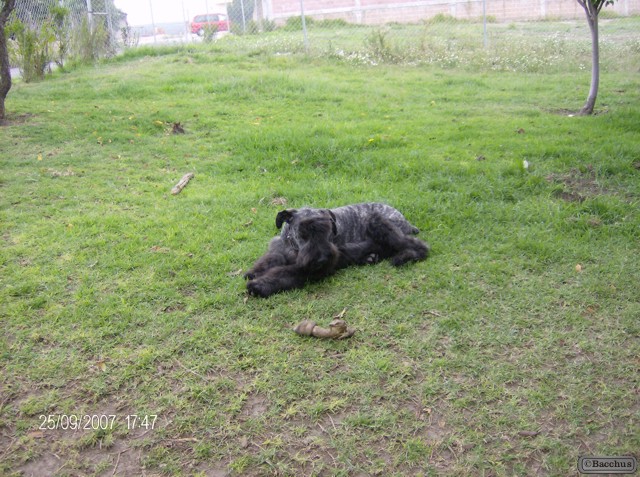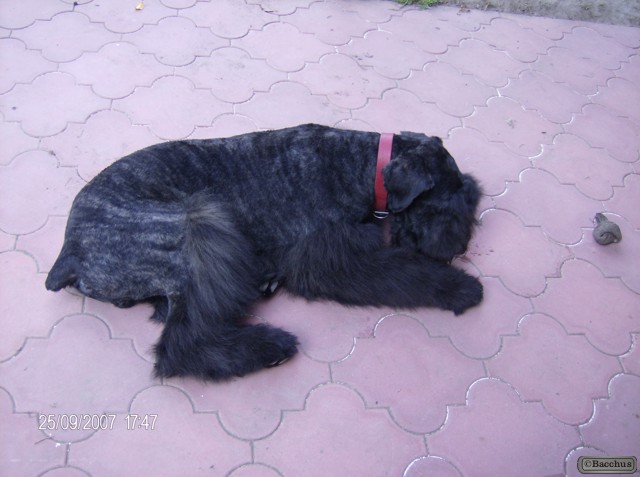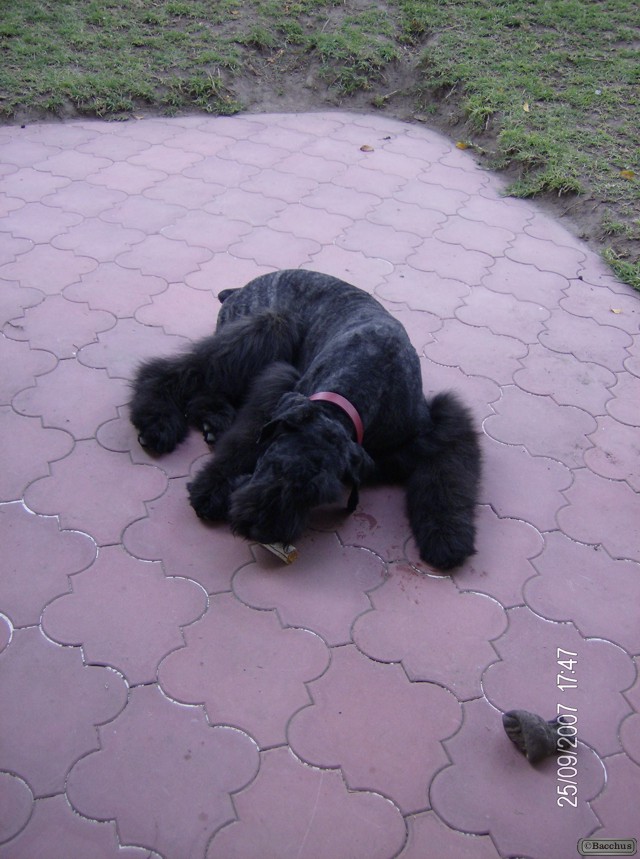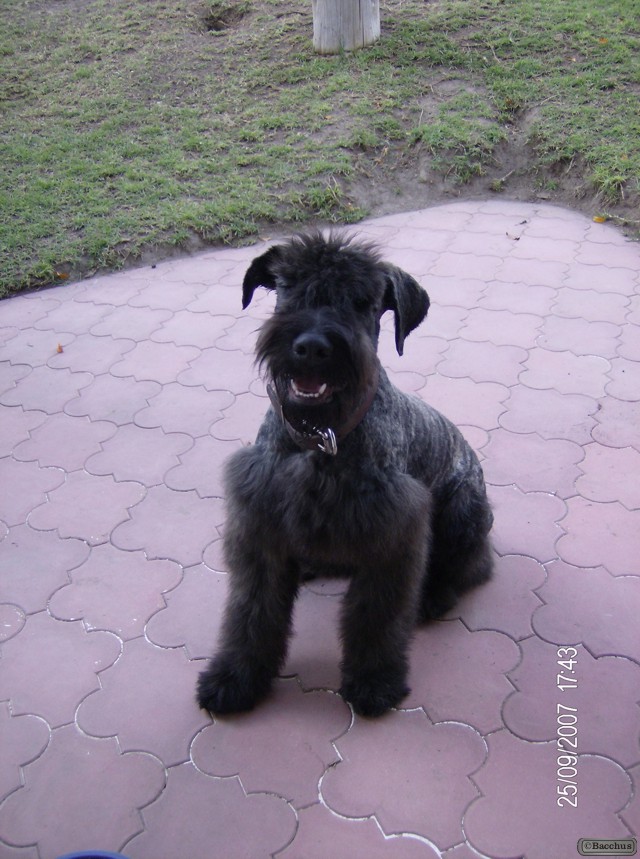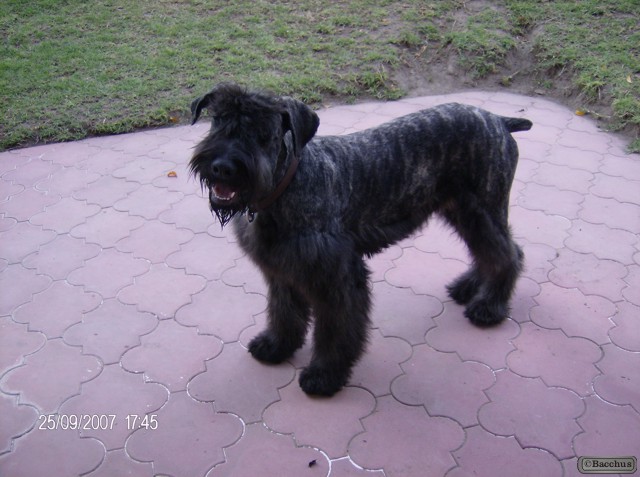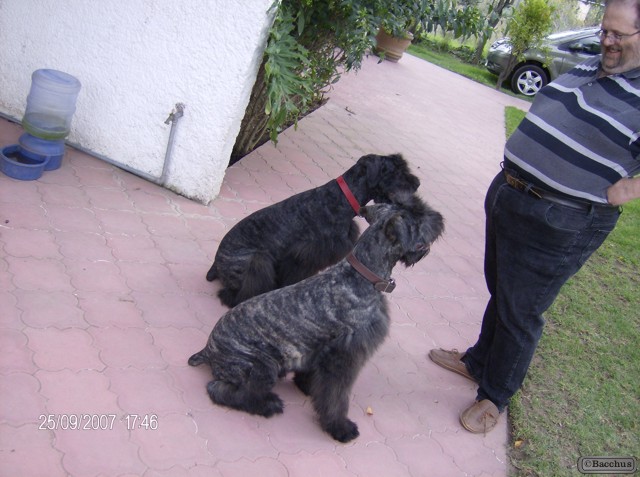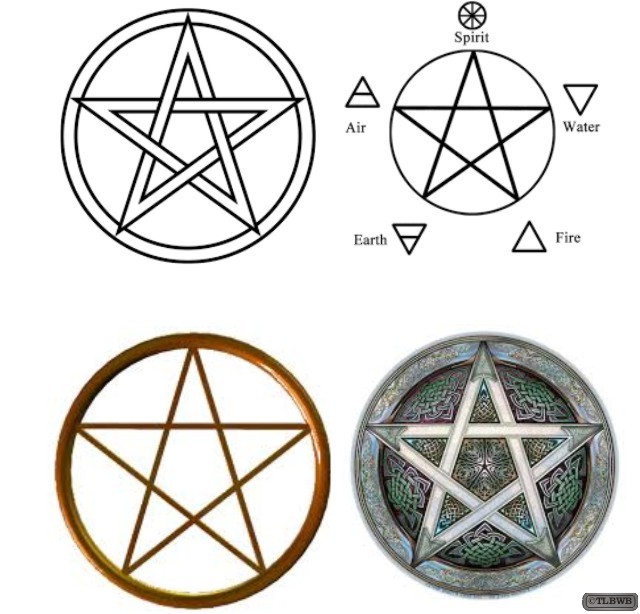Para-Ordnance P14-45
Para USA (Para) is an American-owned firearms manufacturer. It is the successor to Para-Ordnance, founded in Canada in 1985. It specializes in making M1911-style semi-automatic pistols.
History
Para-Ordnance was founded in Canada, in 1985, by two childhood friends, Ted Szabo and Thanos Polyzos. Szabo was born in Hungary and his family fled the country when the Soviets invaded during the Hungarian Revolution in 1956. Polyzos was born in Greece and later emigrated to Canada. On March 28, 2007, Ted Szabo died at the age of 60. The company’s first product was a plastic paintball gun, the Model 85 “Dye Marking Tactical Machine Pistol”, designed for police and military training purposes.
Para-Ordnance had a factory in Scarborough, Ontario, Canada. The company was estimated to have an annual revenue of over 10 million dollars and employs a staff of 60.
In January 2009, it was announced that the U.S. headquarters for Para-Ordnance’s U.S. subsidiary (Para USA) would be set up in Pineville, North Carolina. In January 2012, Para-USA became a part of the Freedom Group, owned by Cerberus Capital Management.
Products
Para-Ordnance was the originator of a high magazine capacity M1911-style pistol. Para-Ordnance was also the manufacturer of the first double-action-only 1911-style pistol. The company has created a true double-stack 1911 pistol, in addition to single- and double-stack pistols in .45 ACP, .40 S&W, 9 mm, and .38 super calibers. Para pistols have found a variety of uses, including competition, law enforcement, concealed carry, and general barrier shooting. The introduction of the LDA (Light Double Action) allowed law enforcement agencies to use 1911-style pistols while still addressing the perceived liability issues of a single-action pistol.
The Sass
Apraxia of speech (AOS) involves the loss of previously acquired speech levels. It occurs in both children and adults who have (prior to the onset of apraxia) acquired some level of speaking ability. AOS affects an individual’s volitional speech and is typically the result of a stroke, tumor, or other known neurological illness or injury. Apraxia may be accompanied by a language disorder called aphasia.
Symptoms of AOS include inconsistent articulatory errors, groping oral movements to locate the correct articulatory position, and increasing errors with increasing word and phrase length. Patients with apraxia find that vowels are easier to produce than consonants. Single consonants are easier than blends. As in stuttering, final consonants are easier than those in the initial position. This may occur because initial consonants are affected by anticipatory errors. Also, perhaps once an apraxic gets speech started with the production of a vowel, production continues in a more automatic fashion. Fricative and affricates are the most difficult phonemes for apraxics to produce. AOS often co-occurs with Oral Apraxia (during both speech and non-speech movements) and Limb Apraxia.
Developmental verbal dyspraxia presents in children who have no evidence of difficulty with strength or range of motion of the articulators, but are unable to execute speech movements because of motor planning and coordination problems.
Norma
A pentacle is an amulet used in magical evocation, generally made of parchment, paper or metal (although it can be of other materials), on which the symbol of a spirit or energy being evoked is drawn. It is often worn around the neck, or placed within the triangle of evocation. Protective symbols may also be included (sometimes on the reverse), a common one being the five-point form of the Seal of Solomon, called a pentacle of Solomon or pentangle of Solomon. Many varieties of pentacle can be found in the grimoires of Solomonic magic; they are also used in some neopagan magical traditions, such as Wicca, alongside other magical tools.
The words pentacle and pentagram (a five-point unicursal star), which traces the etymology through both French and Italian back to Latin, but notes that in Middle French the word “pentacle” was used to refer to any talisman. In an extended use, many magical authors treat them as distinct. In many tarot decks and in some forms of modern witchcraft, pentacles often prominently incorporate a pentagram in their design.
There is a specific differentiation between pentacle and pentagram within Wicca and other neopagan traditions. Namely, a pentacle refers to a pentagram circumscribed by a circle. This form of pentacle is formed upon a disk which may be used either upon an altar or as a sacred space of its own. The pentacle is representative of the Earth in occult usage.
Pentacles, despite the sound of the word, often had no connotation of “five” in the old magical texts, but were, rather, magical talismans inscribed with any symbol or character. When they incorporated star-shaped figures, these were more often hexagrams than pentagrams.
The Pentagram means different things to different people. Some may argue as to what it represents, so if these words do not agree with you, do not get your panties in a knot. So here are several meanings of the pentagram and I am sure there are more that I have not covered.
The Pentagram right side up represents the Divine ruling over the world of matter. Let us not forget that it also represents the elements Spirit, Water, Air, Earth, and Fire as shown below. This is most commonly used pentagram by most people in Witchcraft.
The Lost Bearded White Brother
Types
There are several types of apraxia including:
- Ideomotor apraxia: These patients have deficits in their ability to plan or complete motor actions that rely on semantic memory. They are able to explain how to perform an action, but unable to “imagine” or act out a movement such as “pretend to brush your teeth” or “pucker as though you bit into a sour lemon.” The ability to perform an action automatically when cued, however, remains intact. This is known as automatic-voluntary dissociation. For example, they may not be able to pick up a phone when asked to do so, but can perform the action without thinking when the phone rings.
- Ideational/conceptual apraxia: Patients have an inability to conceptualize a task and impaired ability to complete multistep actions. Consists of an inability to select and carry out an appropriate motor program. For example, the patient may complete actions in incorrect orders, such as buttering bread before putting it in the toaster, or putting on shoes before putting on socks. There is also a loss of ability to voluntarily perform a learned task when given the necessary objects or tools. For instance, if given a screwdriver, the patient may try to write with it as if it were a pen, or try to comb one’s hair with a toothbrush.
- Buccofacial or orofacial apraxia: Non-verbal oral or buccofacial ideomotor apraxia resulting in difficulty carrying out movements of the face on demand. For example, an inability to lick one’s lips or whistle. This is an ability to carry out any volitional movements of the tongue, cheeks, lips, pharynx, or larynx on command.
- Constructional apraxia: The inability to draw or construct simple configurations, such as intersecting shapes.
- Gait apraxia: The loss of ability to have normal function of the lower limbs such as walking. This is not due to loss of motor or sensory functions.
- Limb-kinetic apraxia: Difficulty making precise movements with an arm or leg.
- Oculomotor apraxia: Difficulty moving the eye, especially with saccade movements that direct the gaze to targets. This is one of the 3 major components of Balint’s syndrome.
- Apraxia of speech: Difficulty planning and coordinating the movements necessary for speech.
Each type may be tested at decreasing levels of complexity; if the person tested fails to execute the commands, you can make the movement yourself and ask that the person mimic it, or you can even give them a real object (like a toothbrush) and ask them to use it.
Norma
Wiccan morality is largely expressed in the Wiccan Rede: ‘An’ it harm none, do what ye will’ – old-fashioned language for ‘as long as you aren’t harming anyone, do as you wish’. While this could be interpreted to mean “do no harm at all,” it is usually interpreted as a declaration of the freedom to act, along with the necessity of thinking through and taking responsibility for the consequences of one’s actions.
Another element of Wiccan Morality is expressed in the Law of Threefold Return, which is understood to mean that whatever one does to another person or thing (benevolent or otherwise) returns with triple force. Opinions differ on whether the form taken by the return of harmful actions might include bad reputation, revenge by others, negative emotional states, an uneasy conscience, poor luck, malign magical influences, something resembling the Hindu concept of karma, or some combination of some or all of these, and also on to what extent the number three should be interpreted poetically rather than literally.
Many Wiccans also seek to cultivate a set of eight virtues mentioned in Doreen Valiente’s Charge of the Goddess, these being mirth, reverence, honour, humility, strength, beauty, power and compassion. Describing this witch-cult as “a joyous religion”, she claimed that the two primary festivals that it celebrated were on May Eve and November Eve, although that other dates of religious observation were 1 February and 1 August, the winter and summer solstices, and Easter. She asserted that the “General Meeting of all members of the religion” were known as Sabbaths, while the more private ritual meetings were known as Esbats. At the former, magical rites were performed both for malevolent and benevolent ends. She also asserted that the Sabbath ceremonies involved the witches paying homage to the deity, renewing their “vows of fidelity and obedience” to him, and providing him with accounts of all the magical actions that they have conducted since the previous Sabbath.
The Lost Bearded White Brother
Apraxia is a motor disorder caused by damage to the brain (specifically the Posterior Parietal Cortex), in which someone has difficulty with the motor planning to perform tasks or movements when asked, provided that the request or command is understood and he/she is willing to perform the task. Apraxia is an acquired disorder of motor planning, but is not caused by incoordination, sensory loss, or failure to comprehend simple commands (which can be tested by asking the person to recognize the correct movement from a series). It is caused by damage to specific areas of the cerebrum. Apraxia should not be confused with ataxia, a lack of coordination of movements; aphasia, an inability to produce and/or comprehend language; abulia, the lack of desire to carry out an action; or allochiria, in which patients perceive stimuli to one side of the body as occurring on the other. Developmental coordination disorder (DCD) is the developmental disorder of motor planning.
Norma
In Wicca the boline is a white-handled ritual knife, one of several magical tools used in Wicca, mainly for the cutting of herbs and inscribing candles.
Unlike the athame, which in most traditions is never used for actual physical cutting, the boline is used for cutting cords and herbs, carving candles, etc. It has a small, straight or crescent-shaped blade with traditionally, a white handle. A Boline is a tool with two purposes, the first is to aid in collecting ingredients. To this end is functions as shears with the additional benefit that it will harvest cobweb without turning it to string. A Boline can be used as a weapon with the same durability as an iron sword, but the damage of a wooden sword. It can be enchanted like an iron sword. The Boline is meant to be put to work and become an active part of your magickal practice.
You may wish to consecrate your boline before you use it for the first time. In many modern Pagan traditions, magical tools are consecrated before use. This achieves a couple of things — one, it purifies the item before it is used to interact with the Divine. Secondly, it removes any negative energies from the tool. This is particularly handy if you aren’t sure of a tool’s past history or who owned it before it came to you. This ritual is a simple one that can be used to consecrate any magical tools, clothing or jewelry, or even the altar itself.
The Lost Bearded White Brother
Chapter 10
By the middle of the cold moonlit night Kellor, one of the trackers that was still ahead, came back to report. He had news of a gigantic rock troll, waiting by the source of the river. He was by a large mound of rocks, on an escarpment overlooking the Source. From this position he could hurl the rocks down on unsuspecting riders. He effectively blocked the access to the Source.
Ludger asked.
“How close could I get to the troll, without being discovered?”
Kellor answered.
“By climbing up on a ridge, in the deep snow, you should be able to get within four to five hundred yards. But the going would be difficult and I do not know what you could do from such a distance.”
“You only have to get me there. Let me worry about what I will do.”
Ludger went to his pack horse. He took out a pair of white coveralls. He put them on over his winter clothing. He unhitched a long, padded, leather bag from his pack saddle. He removed from it the parts of his fifty calibre semi-automatic sniping rifle. The large gun was based on the .50 calibre round of the M2 HMG. It was effective to ranges of up to about one mile. He assembled the long, heavy rifle and wrapped it in a band of white elasticized cloth. He loaded two magazines with five of the large shells, apiece. He pulled a white balaclava over his head and put some white covers over his boots. He stepped on a pair of snow shoes and fastened the bindings. He hefted the heavy rifle, by its shoulder harness, to his back.
He looked at the tracker, who was gawking at him, with astonishment showing on his face. He said to the tall lanky man.
“Lead me to the beast so that I can slay it.”
Ludger felt like a medieval knight going after the fabled Dragon. Only the Damsel-in-Distress was missing. Deep down he hoped that the large rifle was enough gun to dispose of the rock troll. Never having seen such a creature before, he somewhat doubted it.
He followed his guide for over an hour. Ludger was amazed at the man’s endurance through the deep snow. They finally reached the bottom of a long sloping ridge. They started the arduous climb up its side. When they approached the crest of the ridge, Kellor went prone. He slowly crept to the edge. Ludger quickly followed suit. He was rewarded by a magnificent sight.
The two sheer faces of the canyon, bordering the bed of the river, widened around a circular pool. They ended abruptly at a large vertical wall of colossal dimensions. The pool, at the base of the wall, was over the underground source of the river. In the bright moonlight he could see, to the right of the pool, a small plateau. It was below their level, but still a few hundred feet over the level of the pool. On the plateau was a large pile of boulders. Coming from down river, anybody would be at the mercy of an avalanche of rocks, created by somebody standing guard on that ridge.
Ludger asked Kellor the location of the troll. The scout pointed to a large ponderous black shape that stood near the boulders. Ludger thought it was a large rock. Then the rock slowly moved away.
He pulled out a small pair of rubber clad binoculars from under his chainmail. He studied closely the ungainly creature. He estimated its mass to be similar to that of a bull elephant. He had not expected it to be so large. It looked like a rough hewed snowman with massive limbs made of stone. It stood at a distance that he estimated at about four hundred and fifty yards.
Ludger slid back under the crest of the ridge. Kellor whispered to him.
“This rock troll is over twice the size of the norm. They are solitary creatures that live high in the mountains. You normally do not see them at these elevations. They are placid creatures that do not have the aggressiveness of the other troll species. This one seems very restless, as if forced by some outside force to stand guard on the Source.”
Ludger acquiesced silently. He looked back down the ridge to see if the group was closing up. They were about half a mile back and riding slowly. He unslung his rifle and inserted a loaded magazine. He cycled the action, chambering a round in the process. He handed to the tracker a pair of soft foam earplugs and instructed him in their use. He put on his own pair of sound deadening earmuffs. He unfolded the rifle’s bipod and laid prone on a flat area of ground hastily cleared of soft snow. He spread his legs widely to stabilize himself, in the process bracing his body for the heavy recoil.
After adjusting the ballistic compensator of the high power scope, he carefully took aim at the colossus. He set the trigger and released the safety. When he was sure of his aim, he took a few deep breaths and slowly released them. On the last one he stopped exhaling. After his last muscle tremor died down, he slowly squeezed the last bit of travel from the trigger.
The sound of the shot was deafening, even heard through the hearing protectors. The recoil numbed his shoulder and cheek. As he recovered he followed his first shot by a second, then a third, as the troll sluggishly fell forward and slowly started to roll down the hill. The violent release of gases was dispersed by the muzzle brake of the gun, raising an imposing cloud of snow. Their view was obscured for a few long minutes.
When it cleared up, Ludger shouldered his heavy gun, after making it safe. He jumped over the crest of the hill and ran down, then slid in the snow until he reached the giant rock troll, to make sure of the kill. Kellor followed at a safe distance. Ludger’s fears were unfounded because the first bullet had severed the massive creature’s spine, leaving its still form lifeless. They heard the sound of the troops coming toward them at a gallop. They circled around the two men, standing by their quarry, then dismounted.
They stared in silence at the leathery bulk of the giant troll. Its hide resembled a cracked rock face. Arexis broke the silence.
“I am glad that you were with us. I do not know how my men could have disposed of such a creature. Especially in the strategic position it was. Thank you.”
“You’re welcome, but I’m only doing the job you brought me here for.”
“We will set a day camp and start exploring the area to find a way past this stone wall. We have to get behind in it some way.”
Ludger looked at the rippling surface of the pool. He quickly ruled out an underwater foray. The current was too swift and they were not properly equipped.
At the first light of the suns, one of Arny’s men found an opening in the vertical wall, about two hundred feet above the circular pool. They soon realized that it was the only way in. Ludger decided that with modern climbing equipment and techniques, he could easily reach the opening. There, he could secure himself so that Arexis could follow with ascendeurs on a rope.
He filled two packs with the equipment that they might need. He carried them to the base of the wall. He studied the vertical rock face. There were enough cracks and finger holds to make the climb fairly basic. He would climb to a belay point about half way up to the opening. From there he would haul up the bags and belay Arexis as he followed.
Ludger stripped to his chainmail. The bulky sweater and vest, underneath would keep him warm enough. He removed his boots and stowed them in one of the bags. He put on a pair of light friction boots, their sticky soles of special rubber would help him climb. He stowed his heavy gun belt with the equipment. He fastened a sitting harness around his waist and slung over his shoulder a bandolier laden with karabiners, assorted runners, Friends, tape slings and pegs. He tied onto the end of one of the ropes with a bowline. Arexis would belay him from the ground.
Ludger instructed the Prince on the use of the ascendeurs, those mechanical devices that enables a climber to pull himself up a fixed rope. Due to his natural athletic abilities, Arexis had no problems with the technique.
Ludger put some chalk on his fingers, from a small pouch hanging from his belt. He started climbing. The going was fairly straightforward. As he progressed, Ludger placed runners at regular intervals and clipped his rope on the karabiners as he went by. When he reached the belay point he had chosen, he anchored himself solidly on a Friend that he had wedged into a wide crack in the rock. He doubled up on a peg that he had hammered in a narrower crack. He secured the second rope that he had carried up with him. He uncoiled it to a waiting Arexis. With it he hauled up the two packs of equipment. He secured them beside him.
The men bellow were amazed at how easy the climb was going. Arexis began his climb on the anchored rope while Ludger was belaying him with the other one. He alternately slid the ascendeurs on the rope, while stepping in the tape etriers attached to them. Every time he reached a runner, the Prince would retrieve it. He soon reached Ludger. Arexis smiled while panting slightly. Ludger said.
“I will now climb the rest of the way. You will belay me from here. Once on top I will make the area secure and make sure no bad surprises awaits us. Then you will follow.”
Arexis acknowledged. Ludger took his sword, that was hanging on one of the packs, and slung it over his shoulders. He quickly climbed to an area just bellow the opening. He anchored himself there. He got a good handhold at the edge of the opening and hoisted himself up. As his head cleared the edge, he was face to face with the most hideous creature he had ever seen.
It had a puggy nose, long pointed ears, small dark eyes and a large mouth, full of an incredible assortment of mismatched teeth. The drooling, stinking creature opened a pair of long leather wings. It was a giant bat the size of a large dog. Ludger instinctively drew his sword, while hanging precariously by one hand. He lashed at the bat. The creature rushed him, but its wing being in the way, it tripped and impaled itself on Ludger’s upthrust sword. Ludger scrambled up and rolled on the floor of the cave. He retrieved his sword from the bat’s carcass and cleaned it. He made sure no other creatures were present. The dark cave was empty. He sheathed his sword, went to the mouth of the cave and waved to a worried Arexis that all was right. He hoisted the packs to the cave. Soon the Prince joined him.
Arexis shuddered when he saw the giant bat. The hand of Magdar was in this. They dragged the dead creature to the mouth of the cave and threw it over the edge. It plummeted into the circular pool and landed with a great splash of water. Worried men standing by the water were relieved when they discovered that it was not either men that had fallen.
After a short rest they stowed the climbing equipment in the bags. Ludger put back on his boots and buckled his gun belt around his hips. They shouldered their packs and went to the far end of the cave. An irregular opening was present. Ludger turned on a powerful seven cells torch and peered into the tunnel. Nothing out of the ordinary was revealed.
After they had passed through the opening, they were startled by a loud crashing noise, behind them. A large rock was now blocking their retreat. After a short moment of despair, they walked down the tunnel, resigned that it was the only way to go.
Ludger looked back and saw a faint golden glow coming from the centre of the rock. He shook his head and proceeded forward.
After half an hour of progress down the convoluted narrow corridor, Ludger -who was leading- saw the light of his electric torch reflected back to him from the far end of a long, abnormally straight part of the tunnel. They slowly approached the area. They emerged in a large chamber filled with mirrors forming a complicated maze, reflecting their image ad infinitum.
After exploring the hall of mirrors for over ten minutes, Ludger turned off his torch to rest his overloaded vision. In the darkness Ludger noticed a faded golden glow like he had seen earlier. He pointed it out to Arexis. The Prince could not see it. In the dark, Ludger fumbled for Arexis’ wrist. He led him toward the light. They slowly made their way through the maze of mirrors to arrive at a section that was glowing brightly, but only to Ludger’s senses. Even with his eyes closed he could feel the glow. He wondered why Arexis could not see it.
He lit his torch. They were in a section of the maze that was undistinguishable from any other. He turned off the light and the glow was still present. He approached the mirror panel and passed his hand over it. He felt a faint throbbing and an aura of power filled him. With his hand still on the panel, he touched the handle of his sword. It was not throbbing. This ruled out black magic as the source of the manifestation.
Arexis touched the panel. the only thing he could feel was the cold hard mirror. Ludger lit the torch. He tried to find a way to open or remove the panel, to no avail. He took his climbing hammer and hit the mirror dead centre with a powerful blow. It rang, clear as a bell, for a long time. Not even a scratch was made on its smooth surface.
“It must be magic.” Arexis said.
Following this train of thoughts, Ludger drew his sword. He put its point on the mirror. The sword never made contact with it. It penetrated the surface as if it was not there. He slowly advanced, his hand then his arm went through the solid surface. A strange tingling sensation filled him. He grabbed Arexis by the wrist and pulled him after him.
On the other side of the mirror, they found themselves in a long, well lit corridor of marble. Pedestals with sculpted busts of men lined both walls. Arranged in chronological order, Arexis recognized in them all of his ancestors, the former Kings of the nation. They walked slowly through the corridor, as Arexis pointed salient facts about one or the other of his long dead relatives. They came to a stop in front of the last bust, that of King Bluthor, Arexis’ father. There was a long line of vacant pedestals past that point.
Arexis spent a solemn moment in front of his father’s effigies. He then silently walked away to the far end of the corridor. When they reached it he told Ludger.
“This was the Hall of the Kings. This is where the river of Gods takes its power and wisdom. It is supposed to be a mythical place, but we now stand in it. The more powerful the river flowed, the more prosperous the kingdom was.”
They emerged from the hall into a large room magnificently decorated with tapestries depicting historic scenes. Arexis pointed to the first battle, after which Magdar was imprisoned and to the final confrontation where Bluthor lost his life. This room lacked the aura of power that they had felt in the hall of the Kings. It seemed somewhat drab and dusty amidst all its splendour, as if the source of its powers was missing. In the back of the room an intricately carved throne stood on a dais. On its seat was an embroidered cushion on which laid an elaborately carved sceptre inlaid with precious gems. On its tip, in the middle of a large volute of gold, stood the biggest emerald that Ludger had ever seen.
As they approached the throne, a creature that was the epitome of ugliness, with long fangs, drooly toothless mouth, open pustules, deformed bloated features, long claws and slimy limbs stepped out from behind. To Ludger it seemed to be a composite of everything that could be ugly and disgusting on a human frame. The revolting creature approached them without any signs of hostility. As it came near them it shrivelled and deflated to the shape of a white haired, ascetic looking old man. He slightly bowed his head to Arexis and said in a frail voice.
“Welcome, Your Highness, my name is Trallen. I have been waiting for you. This cave and its content are only an illusion. Would you please follow me?”
As the ornate walls dissolved to bare rock, Trallen turned and left the room by a hidden passage, without looking back. Ludger and Arexis scrambled to follow him. They were in a narrow corridor, with a lot of ninety degrees bends. After one last turn, it suddenly opened into a natural grotto. In its centre, illuminated by a shaft of light coming from a chimney carved in the ceiling, stood a large rock crystal with rainbows dancing through it. On it, laid a small gold wand. It was soberly carved and a small fragment of the crystal was embedded at one end.
Trallen stopped in front of it. He cleared his throat, startling Ludger and Arexis who were engrossed in the contemplation of the changing patterns of colours in the crystal. He said in a soft clear voice.
“This is the a seat of the King’s power over the land. You are in a living mountain. This is the real Hall of the Kings.”
As he said that, they saw on the rock wall, the faces of the old Kings carved in it. Past the likeness of Bluthor was an oval, in the rock, that was throbbing and glowing with an inner light.
Ludger asked about the ornate sceptre in the other room. Trallen answered.
“It was just an illusion. It would have dissolved into a deadly gas if it was picked up.” Looking at Arexis, he added. “I am glad that you have found a man with strong magic to guide you here.”
Ludger looked puzzled as he wondered about what Trallen was saying. He did not know any magic. Trallen continued.
“Only white magic can find its way to the cave. You, Mister Morton, have found the path. Whether you know it or not, you possess strong magic.”
He turned back toward Arexis.
“Your Highness. It is now time to assume the powers of your office.”
He turned to the crystal and traced some cabalistic symbols in the air while singing a strange litany reminding Ludger of Gregorian chants. The frail voice was amplified by the grotto’s acoustics. He was soon joined by the voices of the dead Kings, coming from their effigies on the wall.
After a few minutes, the crystal started to throb, in sync with the chant. Its light patterns flickered frantically. The sound rose to a mind numbing crescendo then suddenly stopped. The ensuing silence was painful to hear. Trallen slowly turned to Arexis. He took him by the arm and led him to the crystal. He said.
“Your Highness, place your right hand on the Crystal of the Ancient Souls. It is now time to take the pledge of devotion to the land, like your father did and his father before him, back to the first ruler of this land. You must realize that your first duty is to safeguard this land for the welfare of its inhabitants. Do you understand this.”
“Yes, I do.”
“Now repeat after me. I, Arexis of Talenthar,”
In a solemn voice Arexis declared.
“I, Arexis of Talenthar,”
“will to my last breath of life,”
“will to my last breath of life,”
“cherish and protect this exalted land of mine,”
“cherish and protect this exalted land of mine,”
“and its many dependants, sentient or not.”
“and its many dependants, sentient or not.”
“I will do so with upmost benevolence and dignity.”
“I will do so with upmost benevolence and dignity.”
After this last phrase, a golden glow enveloped Arexis and slowly infused him. When the aura finally subsided Arexis picked up the sceptre and turned toward the wall. The shapeless throbbing oval of light had solidified into his likeness.
Trallen simply said.
“It is done.”
As Trallen was leading them out of the grotto, the lips of Bluthor’s effigies softly whispered.
“Good luck, my son, may the Gods be with you.”
They were led down a series of endless stairways and corridors, Trallen never looking back to see if they were following. They could barely keep up with the old man. They emerged into a gigantic cave with a slow river running through its centre. Trallen pointed to the far end of the cave and said.
“Behind that boulder lays an exit that will take you back to your friends. Your Highness, now that you have taken control of the power, the flow of the river will begin to increase. Do not stay in its path too long. I wish you, and the land, the best Fortune.”
With this he dissolved into thin air without a trace. With a sigh, Ludger patted Arexis on the shoulder. He said.
“Come on, Your Exalted Kingness, it is time to go and present you to your devoted subjects.”
He made an exaggerated bow and led Arexis. The new King broke into laughter. A narrow crag started behind the large boulder. It slowly widened to a tunnel. At the far end of it they could see daylight. They emerged from the solid rock near the source of the river, amidst the consternation of the awaiting men.
Ludger declared in a booming voice.
“Behold, men, of your new monarch. I present you His Royal Highness King Arexis of Talenthar.”
A loud cheer erupted simultaneously from all the men. Among backslapping and congratulations, wineskins were broken out to toast the new King. As the suns were already getting high, the day camp was lifted. They hastily started their retreat. They had to reach the pass before the enemy troops.
As they made their way down river, Ludger manoeuvred his horse beside Andrack’s. He hailed the wizard.
“I have to ask you a question. In the mountain, Trallen told me that I was a magician. That only white magic could have led Arexis successfully. How can this be possible?”
“Well, for what I have heard of your world, men lost their innate talent for magic due to the rationalization of their environment through science. They became observers instead of participants. Thus loosing touch with the currents of power emanating from Mother Earth. It led to the point that these currents are only faintly present, in some specific areas, due to lack of use. Some people from your world, like yourself, are highly attuned to these current.
Why have you built your retreat where you have?”
Ludger was lost in thoughts for a moment. He then replied.
“The only truthful answer I can give you is that it felt right. That I felt in harmony with nature in that particular place.”
“The reason you felt so comfortable in that area, is that you can sense the faint powers of your world. You built your house at a node of this power. This is why you can sense the impoverished powers of this world, while the rest of us cannot. We are used to a much stronger field.
You should continue your relaxation exercises. But now turn your mind to the powers of this world. You can focus on these powers so that you can eventually use them. I will teach you some new exercises to help you in focusing them.”
While Andrack was instructing his pupil, Arny returned and consulted with the King. Arexis interrupted the wizard and said in a loud voice.
“We have to pick up our pace, the advancing army is closer to the pass than we expected. We only have a few hours lead. The flow of the river is slowly growing. It will soon slow us down, as it start reclaiming its bed.”
They were rushing over the slippery rocks and at times through the frigid waters as the river was slowly swelling. News of their enemies gaining on them soon reached the fleeing men. They now might have to fight before the pass.
As they pushed their mounts harder, Andrack asked if Ludger could concentrate on the river’s powers and to visualize a quicker flow of the water.
Ludger emptied his mind and tried to focus on the river. He was surprised to see a pattern of lights in the river’s water. It reminded him of a similar pattern in the large crystal in the mountain. He tried to visualized a quicker flow of the water or of the patterns. His concentration broke and he lost track of the lights. He said so to Andrack. The wizard told him to concentrate again. When he locked on to the light patterns, Andrack leaned precariously from his mount. He grabbed Ludger’s wrist tightly. With his free hand he fingered a spell while silently wording the incantation. Ludger felt a rush of power flowing through him, then suddenly nothing. Andrack released him gently.
They rode in silence for a while, Fifteen minutes later, as they approached the pass, Ludger turned toward the magician and asked.
“Why has nothing happened?”
Andrack smiled.
“The water has to flow all the way up from the Source. It should reach us soon.”
As to counterpoint this comment, a loud rumbling from upriver echoed in the canyon. The raging torrent of the river was once again at full flow. A towering wall of water was coming at them like a racing express train. They spurred their horses to a gallop. They were soon trudging through the frigid water, trying to reach the gulley before being swept down river by the unstoppable force of the water. When the first wave of cold water hit Ludger, he lost sight of Bacchus who had been moving beside him. She had lost her footing and was now swimming frantically. Ludger finally caught back up to her, he reached down from his saddle and grabbed the dog’s thick collar and hoisted her across his lap.
Slightly downstream of the pass was the bulk of Magdar’s expedition. They were rushing upstream for safety just like Arexis’ men were rushing downstream. These last arrived first and were rapidly scampering up the gulley. A few of their enemies followed them. Dishearten combat followed. Magdar’s men were more interested in saving their lives than in fighting. They were quickly pushed back in the river.
The last members of Arexis’ group were now in the relative safety of the narrow gulley. They watched in horror as Magdar’s men were swept away by the now turbulent flow of the river. The river was now again flowing majestically between the sheer vertical walls of the canyon.
Ludger looked in awe at what had happened. He turned toward Andrack and said.
“Did I do that?”
“In a way, yes. You are not trained in the art of magic and you never learned the gestures and incantations needed to control your powers. But you have a natural affinity for our magic. You may be more powerful than any magician that ever lived because you are not bound by the ritualistic nature of our art.
What I did was to channel the weak powers of this world through you, where they were amplified. As I linked up with you I cast a spell that execute through you with great success.”
“You mean in technological terms, that I was the hardware amplifying and channelling the power. You were the software operating the spell.”
“I am not quite familiar with the terms, but essentially it is correct.”
Ludger felled back in a long silence, as they rode up the narrow gulley.

This work is licensed under a Creative Commons Attribution-NonCommercial-NoDerivatives 4.0 International License.
From 1990: One Way Ticket To Talenthar
The Sass
Aphasia (from Greek a- (“without”) + phásis (“speech”)) is the name given to a collection of language disorders caused by damage to the brain. The word aphasia comes from the word aphasia, in Ancient Greek, which means “speechlessness”, derived from aphatos, “speechless” from a-, “not, un” and phemi, “I speak”. A requirement for a diagnosis of aphasia is that, prior to the illness or injury, the person’s language skills were normal (for developmental language disorders, see specific language impairment). The difficulties of people with aphasia can range from occasional trouble finding words to losing the ability to speak, read, or write, but does not affect intelligence. This also affects visual language such as sign language. The term “aphasia” implies a problem with one or more functions that are essential and specific to language function. It is not usually used when the language problem is a result of a more peripheral motor or sensory difficulty, such as paralysis affecting the speech muscles or a general hearing impairment.
Norma





